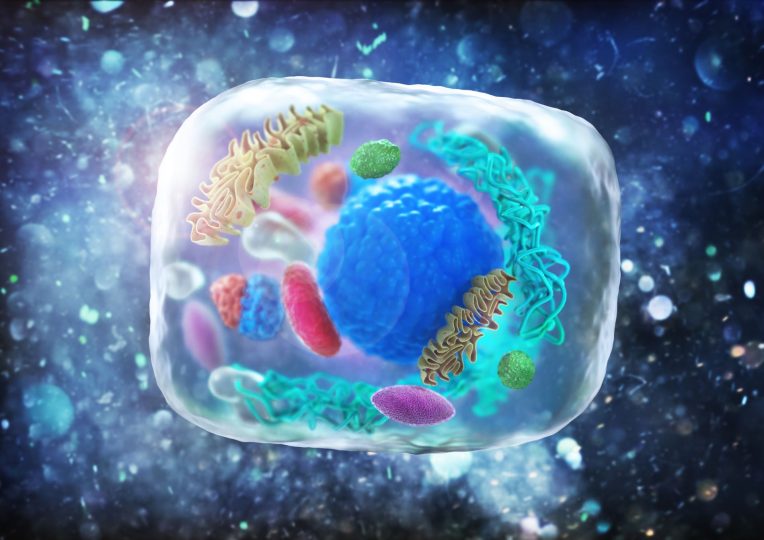Illinois State University’s Dr. Martin Engelke has received a $1,653,423 Maximizing Investigators’ Research Award (MIRA) from the National Institutes of Health to advance studies on a cellular level.
The five-year grant will fund Engelke’s student-centered research laboratory at Illinois State to explore mechanisms that regulate transport processes within cells, specifically inside a specialized organelle called the cilium.
Appears InCilia, which is Latin for eyelash, act as microscopic, signal-receiving antennas of cells. “If cilia malfunction, problems can occur, such as polycystic kidney disease, blindness, obesity, and cancer,” said Engelke, an assistant professor of biology at Illinois State. His lab specifically examines a motor protein called Kinesin-2, that acts like an engine that powers the movement of cargo trains carrying things cells need. “When something is wrong with Kinesin-2, the cargo trains do not move, and cilia either are not formed or do not function properly,” he said.
Engelke’s lab looks at what happens when the transport powered by the molecular motor Kinesin-2 is impaired. He hopes students who join the work in his lab will discover how the activity of the Kinesin-2 “motor” is regulated to power this intricate transport process. “If understood, these insights can potentially inform the development of treatment strategies to alleviate or even cure human diseases caused by malfunctioning transport in cilia,” said Engelke.
Prospective master’s and Ph.D. students who want to conduct research in the Engelke laboratory can apply via ISU’s Graduate School. Interested undergraduate students can find information on how to join the research team on the laboratory’s website.
The work is funded through the National Institute of General Medical Sciences (NIGMS) within the National Institutes of Health. NIGMS works toward an understanding of biological processes and lays the foundation for advances in disease diagnosis, treatment, and prevention.
“I am grateful to NIGMS for considering laboratories at universities with comparatively smaller research programs, like ISU, for MIRA awards,” said Engelke. “This flexible and longer-term funding allows investigators to unfold their creativity and true passions.”

